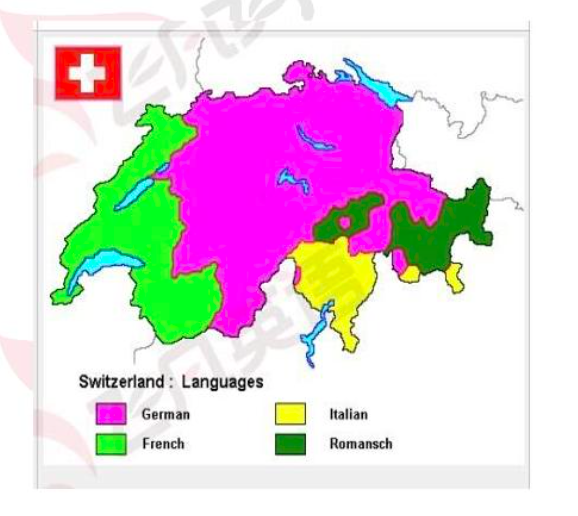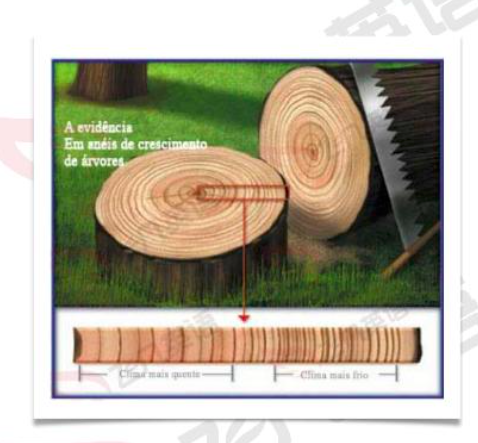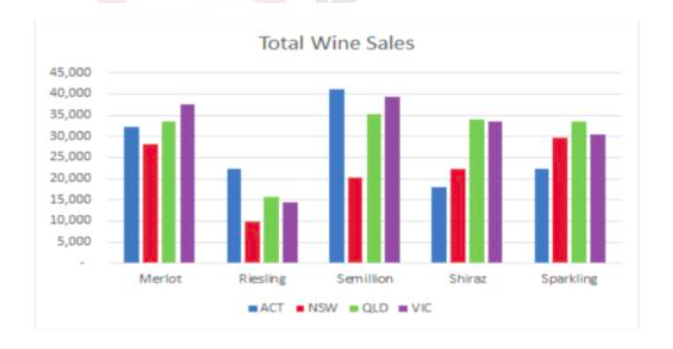Speaking
▌ Read Aloud
1. Vanilla
The uniquely scented flavor of vanilla is second only to chocolate in popularity on the world’s palate. It’s also the second most expensive spice after saffron. But highly labor intensive cultivation methods and the plant’s temperamental life cycle and propagation mean production on a global scale is struggling to keep up with the increasing demand for the product.
2. Yellow
Yellow is the most optimistic colour, yet surprisingly, people lose their tempers most often in yellow rooms and babies cry more in them. The reason may be that yellow is the hardest colour on the eye. On the other hand, it speeds metabolism and enhances concentration; think of yellow legal pads and post-it notes.
3.Cheerful Sunny Yellow
Cheerful sunny yellow is an attention getter. While it is considered an optimistic colour, people lose their tempers more often in yellow rooms, and babies will cry more. It is the most difficult colour for the eye to take in, so it can be overpowering if overused. Yellow enhances concentration, hence its use for legal pads. It also speeds metabolism.
4.Japanese tea ceremony
The Japanese tea ceremony is a tourin fluenced by Buddhism in which green tea is prepared and served to a small group of guests in a peaceful setting. (In Japan, tea ceremony is a ritual-like formalism in which green tea you prepare and serve to multiple guests in a tea full setting). The ceremony can take as long as four hours and there are many traditional gestures that both the server and the guest must perform.
5. Blue
While blue is one of the most popular colours, it is one of the least appetizing. Blue food is rare in nature. Food researchers say that when humans searched for food, they learned to avoid toxic or spoiled objects, which were often blue, black, or purple. When food dyed blue is served to study subjects, they lose appetite.
▌ Repeat Sentence
1. 39.5% of Californian residents didn’t speak English at home.
2. I can’t attend the lecture because I have a doctor appointment.
3. Company exists for money, not for society.
4. Even with the permit, finding a parking spot on campus is still impossible.
5. Most printers in the library are out of ink.
6. Residents hall is closed prior to the academic building closing time in the semester.
7. All necessary information is in the assignment.
8. I believe children should read aloud more.
9. The course registration is open early March for new students.
10. You should include your name and identification number in the application form.
11. Interpreters are not readily available in this department.
12. The verdict depends on which side was more convincing to the jury.
13. The psychology department is looking for volunteers to be involved in research projects.
▌ Describe Image
1.

2.

3.

▌ Retell Lecture
1. Water on Mars
• In the past five years, the temperature of Mars has increased.
• The research conducted on the Mars indicates the prior existence of liquid water.
• The evidence is that researchers found several elements which are essential to form water, such as calcium carbonate, salt, mineral, and perchlorate.
• Consequently, we can speculate that there used to be water existed on Mars as liquid form and Mars may be a hospitable planet long time ago.
2. Food Traffic Lights
Traffic light food system,

4. A Survey
Let’s say if I’m asking which source do you often use to get information, Newspaper? Radio? TV?
And the survey shows 62% of the people chose internet.
You might be thinking I am going to say, how important the internet is, or how quickly it has changed the world for a few years. But what if I tell you this survey is conducted on the website globalandmail.com?
Our answer will be different. Because the people who did this survey on a website must be frequent users of internet. This sample is a biased sample. So we have to pay attention to how a survey is conducted.
WRITING
▌ Summarise Written Text
1. Ageing
We live in an ageing world. While this has been recognised for some time in developed countries, it is only recently that this phenomenon has been fully acknowledged. Global communication is “shrinking” the world, and global ageing is “maturing” it. The increasing presence of older persons in the world is making people of all ages more aware that we live in a diverse and multigenerational society. It is no longer possible to ignore ageing, regardless of whether one views it positively or negatively.
Demographers note that if current trends in ageing continue as predicted, a demographic revolution, wherein the proportions of the young and the old will undergo a historic crossover, will be felt in just three generations. This portrait of change in the world’s population parallels the magnitude of the industrial revolution – traditionally considered the most significant social and economic breakthrough in the history of humankind since the Neolithic period. It marked the beginning of a sustained movement towards modern economic growth in much the same way that globalisation is today marking an unprecedented and sustained movement toward a “global culture”. The demographic revolution, it is envisaged, will be at least as powerful.
While the future effects are not known, a likely scenario is one where both the challenges as well as the opportunities will emerge from a vessel into which exploration and research, dialogue and debate are poured. Challenges arise as social and economic structures try to adjust to the simultaneous phenomenon of diminishing young cohorts with rising older ones, and opportunities present themselves in the sheer number of older individuals and the vast resources societies stand to gain from their contribution.
This ageing of the population permeates all social, economic and cultural spheres. Revolutionary change calls for new, revolutionary thinking, which can position policy formulation and implementation on sounder footing. In our ageing world, new thinking requires that we view ageing as a lifelong and society-wide phenomenon, not a phenomenon exclusively pertaining to older persons.
Sample Response:
We live in an ageing world, and it is no longer possible to ignore ageing, and a demographic revolution will be felt in just three generations, and the demographic revolution will be powerful, and both the challenges as well as the opportunities will emerge, and revolutionary change calls for new, revolutionary thinking, which can position policy formulation and implementation on sounder footing. (62 words)
2. Malaysia
Malaysia is one of the most pleasant, hassle-free countries to visit in Southeast Asia. Aside from its gleaming 21st century glass towers, it boasts some of the most superb beaches, mountains and national parks in the region. Malaysia is also launching its biggest-ever tourism campaign in effort to lure 20 million visitors here this year.
Any tourist itinerary would have to begin in the capital, Kuala Lumpur, where you will find the Petronas Twin Towers, which once comprised the worlds tallest buildings and now hold the title of second-tallest. Both the 88-story towers soar 1,480 feet high and are connected by a sky-bridge on the 41st floor. The limestone temple Batu Caves, located 9 miles north of the city, have a 328-foot-high ceiling and feature ornate Hindu shrines, including a 141-foot-tall gold- painted statue of a Hindu deity. To reach the caves, visitors have to climb a steep flight of 272 steps. In Sabah state on Borneo island not to be confused with Indonesias Borneo you’ll find the small mushroom-shaped Sipadan island, off the coast of Sabah, rated as one of the top five diving sites in the world. Sipadan is the only oceanic island in Malaysia, rising from a 2,300-foot abyss in the Celebes Sea. You can also climb Mount Kinabalu, the tallest peak in Southeast Asia, visit the Sepilok Orang Utan Sanctuary, go white-water rafting and catch a glimpse of the bizarre Proboscis monkey, a primate found only in Borneo with a huge pendulous nose, a characteristic pot belly and strange honking sounds.
While you’re in Malaysia, consider a trip to Malacca. In its heyday, this southern state was a powerful Malay sultanate and a booming trading port in the region. Facing the Straits of Malacca, this historical state is now a place of intriguing Chinese streets, antique shops, old temples and reminders of European colonial powers. Another interesting destination is Penang, known as the Pearl of the Orient. This island off the northwest coast of Malaysia boasts of a rich Chinese cultural heritage, good food and beautiful beaches.
Sample Response:
Malaysia is one of the most pleasant, hassle-free countries to visit in Southeast Asia, and any tourist itinerary would have to begin in the capital, Kuala Lumpur, and Sipadan is the only oceanic island in Malaysia, and you can also climb Mount Kinabalu, and Malacca was a powerful Malay sultanate and a booming trading port in the region, and Penang boasts of a rich Chinese cultural heritage, good food and beautiful beaches.
3. Tiny frog found in Mexico
A miner in the state of Chiapas found a tiny tree frog that has been preserved in amber for 25 million years, a researcher said. If authenticated, the preserved frog would be the first of its kind found in Mexico, according to David Grimaldi, a biologist and curator at the American Museum of Natural History, who was not involved in the find.
The chunk of amber containing the frog, less than half an inch long, was uncovered by a miner in Mexicos southern Chiapas state in 2005 and was bought by a private collector, who loaned it to scientists for study. A few other preserved frogs have been found in chunks of amber a stone formed by ancient tree sap mostly in the Dominican Republic. Like those, the frog found in Chiapas appears to be of the genus Craugastor, whose descendants still inhabit the region, said biologist Gerardo Carbot of the Chiapas Natural History and Ecology Institute. Carbot announced the discovery this week.
The scientist said the frog lived about 25 million years ago, based on the geological strata where the amber was found. Carbot would like to extract a sample from the frogs remains in hopes of finding DNA that could identify the particular species, but doubts the owner would let him drill into the stone.
Sample Response:
A miner in the state of Chiapas found a tiny tree frog has been preserved in amber for 25 million years, which would be the first of its kind found in Mexico, and it was bought by a private collector, and Carbot would like to extract a sample from the frogs remains in hopes of finding DNA that could identify the particular species, but doubts the owner would let him drill into the stone. (74 words)
▌ Essay
1. It is important to maintain a right balance of your work and other respects of one’s life such as family and leisure sport. What is your opinion about this? Discuss with appropriate examples.
2. Parents should be held legally responsible for children’s acts. What is your opinion? Support it with personal examples.
3. Do you think cashless society is realistic and why? What are the advantages and disadvantages? (use of credit card)
4. Whether experiential learning (learning by doing) can work well in formal education. Do you agree or disagree?
5. Is it fair for universities to deduct students’ marks when their assignments are overdue?
How to solve this problem?
READING
▌Re-order Paragraph
1. The job of a manager
- The job of a manager in the workplace is to get things done through the employee.
- In order to do this, the manager should be able to motivate its employees.
- However, this easier said than done.
- Motivation practice and theory are difficult, complex subjects touching on several disciplines.
2. A Pilot Delivering Mails
- After finishing first in his pilot training class, Lindbergh took his first job as the chief pilot of an airmail route operated by Robertson Aircraft Co. of Lambert Field in St.Louis, Missouri.
- He flew the mail in a de Havilland DH-4 biplane to Springfield, Illinois, Peoria and Chicago.
- During his tenure on the mail route, he was renowned for delivering the mail under any circumstances。
- After a crash, he even salvaged bags of mail from his burning aircraft and immediately phoned Alexander Varney, Peoria’s airport manager, to advise him to send a truck.
3. Sustainable Development
- Whatever happened to the idea of progress and a better future? I still believe both.
- The Brundtland Report, our Common Future (1987) defines sustainable development as” development which meets the needs of the present without compromising the ability of future generations to meet their own needs.
- Implicit in this definition is the idea that the old pattern of development could not be sustained. Is this true?
- Development in the past was driven by growth and innovation. It led to new technologies and huge improvements in living standards.
4.
- Embryonic stem cells are valued by scientists because the cells‘ descendant can turn into any other sort of body cell.
- These stem cells have been found in tissues such as the brain, bone marrow, blood, blood vessels, skeletal muscles, skin, and the liver.
- They might thus be used as treatments for diseases that require the replacement of a particular, lost cell type.
- Some example cited for a possible treatment using these cells are diabetes, motor neuron disease and Parkinson‘s disease.
▌ Fill in The Blanks
1. Walt Disney World
Walt Disney World has become a pilgrimage site partly because of the luminosity of its cross-cultural and marketing and partly because its utopian aspects appeal powerfully to real needs in the capitalist society. Disney’s marketing is unique because it captured the symbolic essence of childhood but the company has gained access to all public shows, comic books, dolls, apparels, and educational film strips all point to the parks and each other.
2. Dairy Farms
A few summers ago I visited two dairy farms, Huls Farm and Gardar Farm, which despite being located thousands of miles apart were still remarkably similar in their strengths and vulnerabilities. Both were by far the largest, most prosperous, most technologically advanced farms in their respective districts. In particular, each was cantered around a magnificent state-of-the-art barn for sheltering and milking cows. Those structures, both neatly divided into opposite-facing rows of cow stalls, dwarfed all other barns in the district. Both farms let their cows graze outdoors in lush pastures during the summer, produced their own hay to harvest in the late summer for feeding the cows through the winter, and increased(gained) their production of summer fodder and winter hay by irrigating their fields.
LISTENING
▌ Summarise Spoken Text
1. Environmental law
- British government launched the environmental law long before at the time of Charles the Second in order to control the impact of human activities on environment.
- However, the enforcement of environmental law was not well-established.
- Later, during the time of Industrial Revolution, British government reinforced the environment law to punish those companies who applied the Adam Smith theory to increase their profitability.
- Managers were unsatisfied, because companies had to pay more money to ensure the health of their employees under the environmental law, which made companies less competitive in the market.
2. Australian housing
- Economic growth of the society
- Affordable mortgage rates
- Increased immigration leads to higher number of housing required while suppliers remain unchanged.
- Increased purchasing power of buyers.
3. Human Right in UK
- This lecture mainly discussed the free human rights in UK.
- During the second world war, UK was the first country that mentioned free rights among other countries.
- It set up the baseline and minimum standards.
- The positive aspects of human rights include right to marry and election. The negative aspects include sex and religion.
- Other aspects that UK government mentioned include voting, election, tourism and trading.
4. Decline of Bees
- The sign of decline in number of bees
- The drivers of these declines vary, depending on different species.
- The loss of pollination could be huge and catastrophic, which was not yet been proved.
- The positive side is that people are aware of this and are taking actions to fix it.
5. Employee competition
- Competition can improve employees’ performance, motivate employees. Ranking is widely used in large organizations.
- Top 10% people get bonus or rewards, cohorts in the middle have a feeling of fear and hope. This practice is predominant.
- Companies use the ranking, this is a mistake, they think employees can make more productive and increase efficiency through competition, but it only works in really simple work.
6. Amory Lovins (Mr Green)
- A man named Amory. Nobody knows him in the classroom, He has a consulting company and lives in a house built on a mountain.
- He spent 30 years thinking about ways to save energy and solved problems with technologies that already existed.
- People regarded him as genius. He has an unusual character with a wide range of knowledge, but he’s not an academic.
- A female writer wrote a book about him named Mr. Green.
7. DNA and RNA
- Biology is a subject that studies animals, human and the environment around them.
- Although creatures, such as dolphins and flowers, look differently, they are closely related to each other.
- Animals all rely on DNA and RNA to inherit, store and pass genetic information. Cells are based on DNA and RNA, and are the foundation of organs.
- Therefore, organs share the same chemical components, molecules and chemical reactions to generate energy.
- All organs thus have the similar metabolism system that converts energy from one form to another.
- (Note: there are four panels on the screen, and two of them are butterfly and dolphin)
8. Government Power Devolution
- The lecture is about the need to modify government power from federal to state level.
- The Democratic party and the Republic party have different opinions about it.
- The Republic Party believes that government should hold the strong power and entitlement.
- The Democratic Party thinks the government should share its power with the states and the people.
▌ Fill in the Blanks
1. Smart Card
Well in 2004 we integrated ticketing in South East Queensland, so we introduced a paper ticket that allowed you to travel across all the three modes in South East Queensland, so bus, train and ferry, and the second stage of integrated ticketing is the introduction of a Smart Card, and the Smart Card will enable people to store value so to put value on the card, and then to use the card for travelling around the system.
2. Foreshadow
Now that story’s been scotched, as only part of contingency planning. But it was a symptom of the dramatic turn of events in South Australia, and it flushed out other remarks from water academics and people like Tim Flannery, indicating that things were really much worse than had been foreshadowed, even earlier this year.
So is Adelaide, let alone some whole regions of South Australia, in serious bother? Considering that the vast amount of its drinking water comes from the beleaguered Murray, something many of us outside the State may not have quite realised. Is their predicament something we have to face up to as a nation?
3. Factory
radically, consciousness, critically, similar, conversion, Atlantic, spirit, movement, psychological, neighboring/neighbouring, generation,
factory, nitrogen, biology, alphabet, subscribed, operational, galaxies, intelligent, difficulty, rare, followers, introduced, behalf, primarily, elementary, exploring, intentional, intentionally, subsidize, empathy, professionally, sculpture, emulation, emit, problems, campaign, spotted, restore, thick, lays, philosophy, relying, beneath, traditionally, weird, naval, dividend, permanent, paradox, forecast, extreme, subordinate
▌ Write From Dictation
1. Native speaker’s languages are examined by their own native language.
2. The toughest part for public transportation/postgraduate students is funding.
3. You may need to purchase an academic gown before the commencement.
4. Evaluation forms are reviewed by the university personnel.
5. The library hol